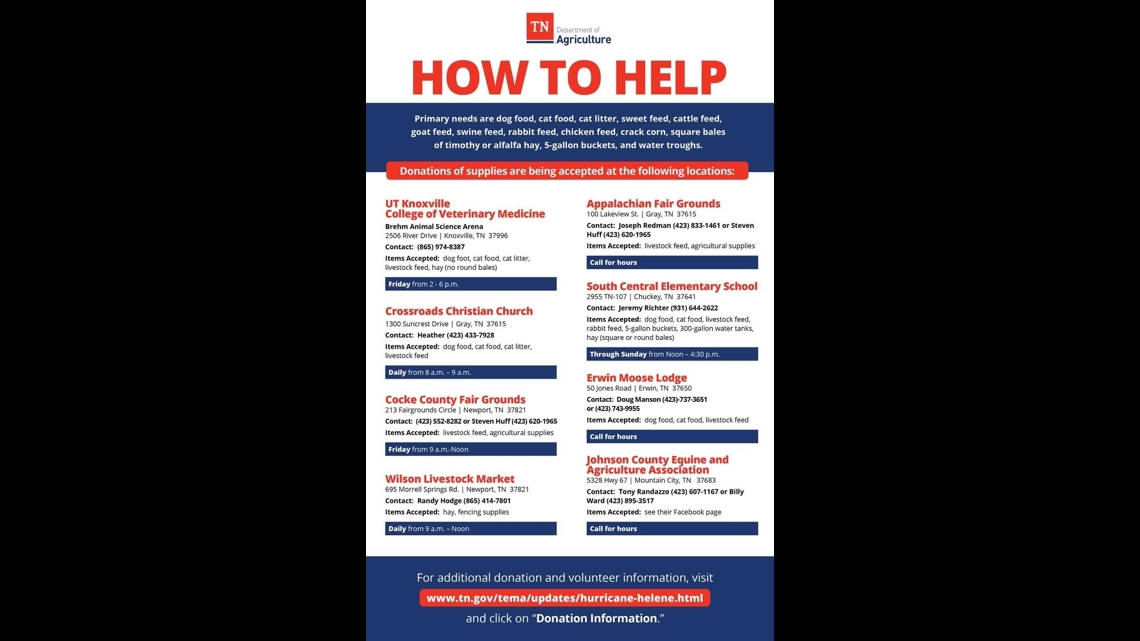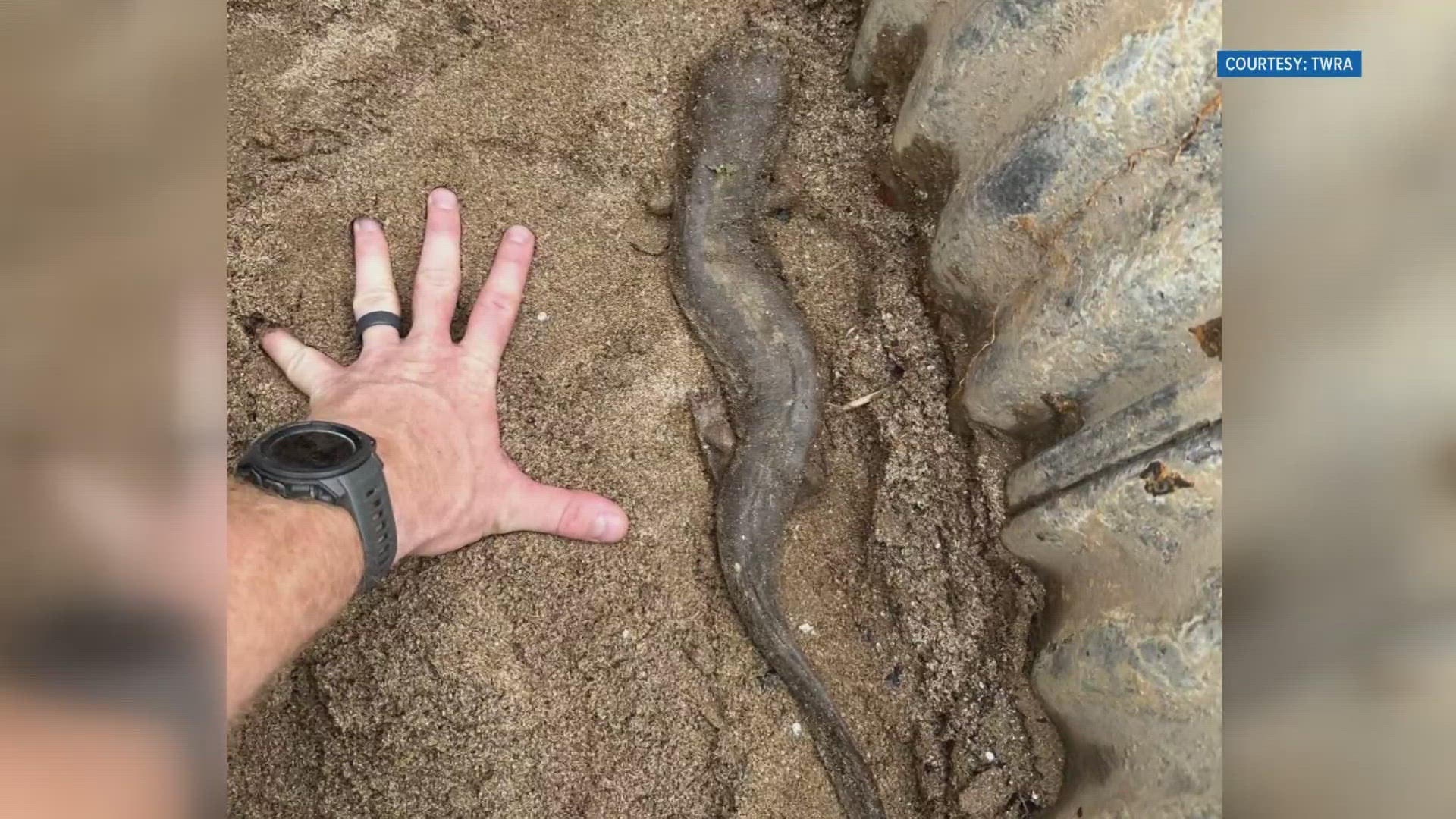KNOXVILLE, Tenn. — Experts are looking into the long-term impact of recent massive flooding on wildlife in East Tennessee.
It's been a busy week for the Tennessee Wildlife Resource Agency. The agency said staff members keeping an eye on animal behavior after the floods. Matthew Cameron, a TWRA spokesperson, said a ranger at David Crockett Birthplace State Park told him he saw a lot of animals move to higher ground ahead of the area flooding.
"He saw a lot of different small mammals like moles and voles and shrews and small furry, little critters making their way for higher ground. He saw beavers going, coming out of the water going up high. A lot of birds were fleeing. People in Erwin reported seeing bears climbing trees just ahead of the waters rising," said Cameron.
Cameron said TWRA officers even rescued a man and his two dogs. He said the man was trapped inside his home along the Nolichucky River.
He said a wildlife officer was heading to Unicoi County to help people trapped on a hospital roof there, but on his way he was flagged down by a motorist who said people were stuck on top of a structure. He went to that location, located near Unicoi County along the Nolichucky River.
He said the man was unable to get out of a sliding glass door near the rear of his home.
"He had a hard time getting that open. He was trapped inside that, but somehow he was able to get it open just enough to get water flowing out of it. It created a really, really dangerous situation for himself and our officers, but the man was mainly concerned about his dogs first. So he sent his dogs out ahead of himself," said Cameron.
Cameron said he saw firsthand, two dead fish that were washed away to a parking lot. He said when the water receded, they dried out. He said the agency has not seen the major die-offs typical of catastrophes, but also said some fish populations were definitely displaced by the flooding. The agency suspects they were carried downstream from the Pigeon River, French Broad River and the Nolichucky River.
Cameron said fish pushed over the Nolichucky Dam will most likely swim down to Douglas Lake or swim upstream. Experts also said domesticated animals were affected by the flooding.
Meggan Graves, a clinical associate professor in field services at the University of Tennessee, said the main problem for indoor pets is not being able to access resources for them like food, medication or litter. She said for outdoor pets, it's a different story.
"Outdoor pets are an even bigger challenge because those animals may have where their usual area is under standing water. They may have experienced an injury or anything like that. Another concern has been animals that have been displaced from their owners or are, you know, those owners are still searching for them," said Graves.
Graves said livestock could have either been killed or displaced by the flooding and warned it could be hard to track down their owners. She said people do not typically have permanent identification on their livestock in upper East Tennessee, but some cattle have ear tags which could help identification efforts.
She also said outdoor animals are usually given natural water sources, and that water has now been contaminated. She said if livestock or outdoor pets are able to be rounded up, fencing could be broken which could cause issues keeping them at home.
However, she said the University of Tennessee Veterinary Medical Center has not seen a major increase in medical care in the aftermath of Hurricane Helene.
"What most people need is hay, feed, water and fencing materials. Those are things that we can take directly to them. So we're really thankful that we're not seeing a lot of veterinary needs, but more tangible needs. And so that's a great way that our community has really stepped up and allowed us to be a distribution center. There are lots of different distribution centers where people can donate feed, they can donate hay," said Graves.


She encouraged people to use the Tennessee Emergency Management Agency's Watch Point, a notification center that receives and distributes information about emergency events in Tennessee. It's available at 615-741-0001.
"That's a great resource. If you see an animal in danger or if you see an animal that looks lost or displaced. If you see something that is alarming, whether that's an animal that's outside of fencing, whether there are animals that you think maybe don't have clean water," said Graves.

